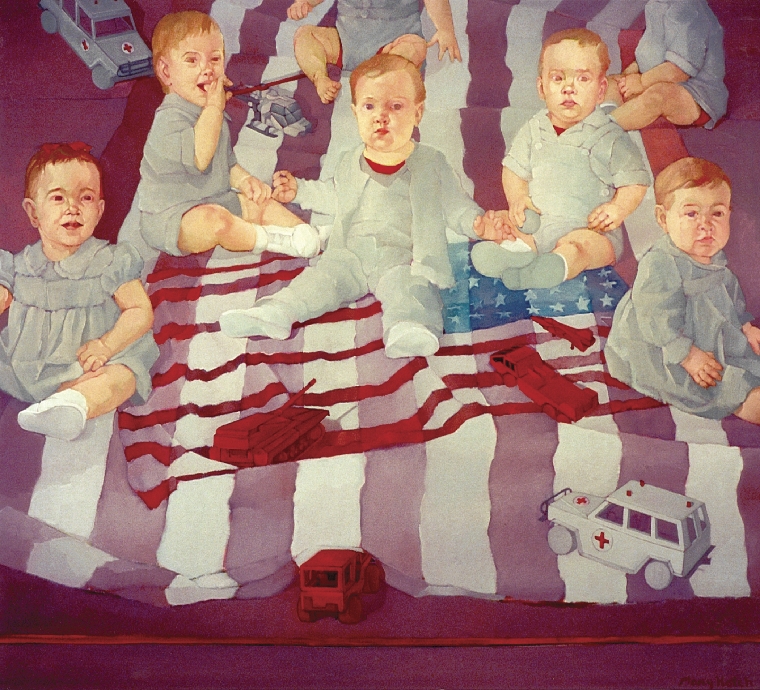
Flag
It’s nights like this I ask myself,
what is a flag? A fluttering
symbol of a nation’s amplified
psychosis. A blood-drenched rag
dipped at the passing catafalque.
A handkerchief to wave at
the soldiers marching off to war,
marching against human failure.
Run it up the pole and see who
salutes it. Use it for swaddling,
a bandage after an accident,
to mop the feverish brow of one
unwell. A thing to dry your hands
on after throwing in the towel.
_______________
Bruce McRae
Review by Rénee K. Nicholson
Bruce McRae’s poem, “Flag” feels eerie in the wake of events in Charlottesville, VA, as pictures of Nazi flags emblazoned with swastikas flapped in the glow of tiki torches. “Run it up the pole and see who / salutes it.” This opening of the second stanza sent shivers up my spine, thinking about what discussions we’re having nationally about flags, and how McRae’s poem confronts them head on.
“…A blood-drenched rag / dipped at the passing catafalque.” The sense of loss, and of a funeral, so implicit in these lines, sticks with one long after the reading. McRae wonders, in the poem’s opening, if a flag is “a symbol of a nation’s amplified / psychosis.” In our current political climate, it speaks to the way politicians often cloak themselves in patriotism, but a false patriotism, a false loyalty more about self than love of country. And who, I wonder, has thrown in the towel at the end of McRae’s poem? Is it us, the quiet unknowns, a collective sigh released as we fall over ourselves to let others determine our fate? Like other poems in this issue, politics feels important to the moment of the poem. McRae refuses an easy shying away of the tough questions presented by a symbol such as a flag, and what, perhaps, defense of it may really mean.
